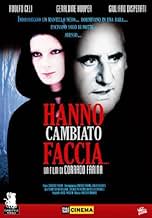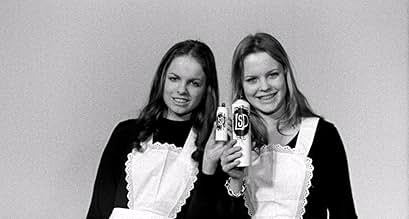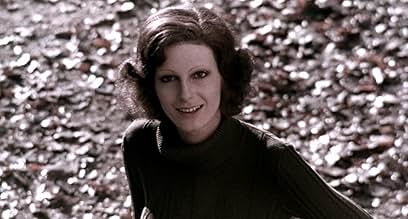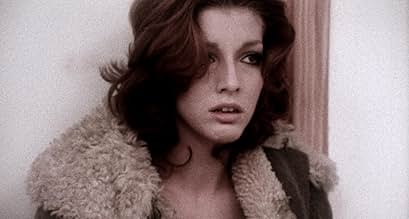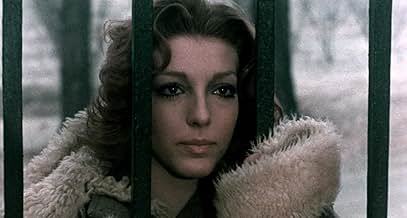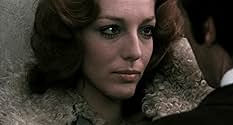Ajouter une intrigue dans votre langueIn this allegory on capitalism, director of a known car corporation invites one of his employees to his country villa to give him the good news. He just got promoted. However, the old man is... Tout lireIn this allegory on capitalism, director of a known car corporation invites one of his employees to his country villa to give him the good news. He just got promoted. However, the old man is not what he seems and promotion has a price.In this allegory on capitalism, director of a known car corporation invites one of his employees to his country villa to give him the good news. He just got promoted. However, the old man is not what he seems and promotion has a price.
- Réalisation
- Scénario
- Casting principal
- Récompenses
- 1 victoire au total
- Alberto Valle
- (as Giuliano Disperati)
- Priest
- (non crédité)
- Scientist in spot commercial
- (non crédité)
- Actor in commercial spot
- (non crédité)
Avis à la une
All this is well and good but what takes it up a level is the overall strangeness of the presentation. The vampire's house is a crumbling old building but inside it is very chic and modern. His henchmen drive around in white minis while sporting jump suits and helmets. While inside the house the hero is exposed to commercials; cumulating in an excellent later scene where a selection of newly developed adverts are shown to Mr Nosferatu in his board room. It's all very disconcerting and, to be honest, it's very hard predicting where this one is going to go. This is very inventive genre film-making that's for sure. The soundtrack by Amedeo Tommasi is great as well, with a variety of tones and themes. It helps set the atmosphere, which is one of real mystery. There is also a good cast too. Adolfo Celi is well suited to the role of Giovanni Nosferatu. But perhaps most interesting of all is Geraldine Hooper who was most famous for her turn as a male homosexual in Dario Argento's Deep Red. Frankly, it was only due to this film that I was even aware that she was not a bloke!
This is one of the most original Italian genre pictures from the 70's. It's one that certainly needs to be seen by a far wider audience.
Alberto works for an automobile company and is delighted to find that the CEO of the company wants to speak to him. He travels to the top of the building where he discovers that the actual true owner of the company is a Mr Nosferatu (Adolfo Celi), who wishes to have Alberto visit his remote villa in the mountains. Alberto hasn't read Bram Stoker's Dracula and thinks there's nothing creepy about that at all.
Things do start getting creepy when the guy and the petrol station runs off when he asks for directions to the villa, and no one will speak to him in the village except a travelling hippy chick who is swanning around the place looking for a lift to somewhere more interesting. Alberto obliges, probably because he's a nice guy and probably not because this chick is walking around with her boobs hanging out.
She gives him the usual 'living free/non-conformist' jive these hippies like to bore people with, and then starts putting the moves on him, but Alberto is determined to see his boss. Laura (the hippy) elects to wait in the car for him while he makes his way up to one of the stranger villas to appear in Italian cinema. For starters, he's escorted to this house by two silent men driving tiny white cars. He's then ushered into the building by a very pale, tall woman who is Mr Nosferatu's secretary. She informs Alberto that Mr Nosferatu doesn't entertain visitors until the evening but in the meantime Alberto is free to relax and have a drink. Alberto (and the audience) quickly find out that the real purpose of the plot is for director Farina to make some sort of comment on the symbiotic relationship between consumer and the big corporations who offer us every product we desire. This is done subtly when Alberto's arse makes contact with a couch and an advert about the couch starts blaring from speaks on the wall. This also happens when he uses a certain shower gel and of course a 'Mr Nosferatu' brand johnny to shag Nosferatu's secretary.
It becomes clear soon enough that Farina is in piss-take mode as he makes fun of the Dracula story (Nosferatu does have a crypt, for instance, but also likes to shoot targets that yell when he hits one). Alberto is the Jonathan Harker character who tries to escape as things get stranger, but is lured back by the secretary, and of course the promotion of a high-level promotion.
The best bit for me was when Nosferatu has a board meeting to discuss the mass-marketing of LSD and is shown three different adverts. One makes fun off Jean Luc-Godard's socio-political style, and best of all there's a Fellini pastiche where a clown plays a trombone in the middle of a field while his mother and father look on. It's nearly, but not quite, as fun as Baba Yaga, this one.
I don't know if I haven't to even mention the quality of Adolfo Celi's acting. He seems to pull any character without any effort whatsoever, so even a vampiric corporate fat cat comes across naturally and charming.
And that hippy in the car? Farina saves the best joke for last...
Le saviez-vous
- AnecdotesDebut role and only career nude scenes for Francesca Modigliani. She made one more film after this and then quit acting.
- Citations
Actor in commercial spot: A shower isn't a shower if your water pipes don't contain A-1 Tonic.
Actress in commercial spot: With A-1 Tonic, you're younger, stronger ... happier to live and love!
Actor in commercial spot: [letter "A" in Italian, sighed as an ecstatic "Ah!"] A-1 Tonic caresses your skin.
Actress in commercial spot: [also with the ecstatic "Ah!"] I'd also like to feel A-1 Tonic caress my skin.
Actor in commercial spot: You can't, unless you surrender. without shame, young and naked.
Actress in commercial spot: I am young, and I'm also...
[Alberto turns off water, cuts off ad]
- ConnexionsSpoofs La strada (1954)
Meilleurs choix
- How long is They Have Changed Their Face?Alimenté par Alexa
Détails
- Date de sortie
- Pays d’origine
- Langue
- Aussi connu sous le nom de
- They Have Changed Their Face
- Lieux de tournage
- Chieri, Torino, Piemonte, Italie(Giovanni Nosferatu's house)
- Société de production
- Voir plus de crédits d'entreprise sur IMDbPro
- Durée1 heure 36 minutes
- Couleur
- Mixage
- Rapport de forme
- 1.85 : 1
Contribuer à cette page


